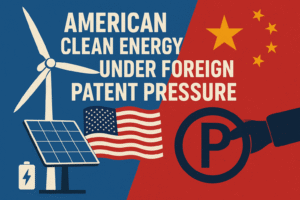In a significant ruling with implications for global brand protection and Indian intellectual property procedures, the Bombay High Court has set aside an order by the Registrar of Trade Marks that denied Japanese automobile manufacturer Yamaha the registration of its ‘WR’ trademark in India. The High Court directed that the matter be reconsidered in accordance with proper legal procedures.
Background of the Case
Yamaha Hatsudoki Kabushiki Kaisha, the Japanese two-wheeler giant, had applied to register the mark “WR” in India for its upcoming motorcycle lineup. However, the Registrar of Trade Marks rejected the application, citing potential confusion with Honda’s existing automobile trademark “WR-V.” The Registrar reasoned that the similarity between the marks could mislead consumers, as both were associated with the automobile sector.
Yamaha challenged the decision before the Bombay High Court, arguing that the Registrar had failed to consider the global reputation and prior use of the ‘WR’ mark, which the company has employed across international markets since 1990.
Court’s Observations
Justice Manish Pitale, who presided over the case, criticized the Registrar’s order for being inadequately reasoned and procedurally flawed. The Court highlighted that the Registrar did not justify the outright rejection of Yamaha’s application under Section 11(1) of the Trade Marks Act, nor did it examine whether the case fell under “exceptional circumstances” that would allow bypassing the standard publication and objection process under Section 20(1).
The judge emphasized that the Registrar should have published the trademark application to invite public objections, rather than rejecting it outright without offering Yamaha a fair chance to defend its claim.
Global Reputation and Coexistence
One of Yamaha’s central arguments was its long-standing use of the “WR” mark in over 60 countries, including several markets where Honda’s “WR-V” also exists. The company contended that there had been no significant incidents of consumer confusion internationally, asserting that the Indian market should not be viewed differently without strong evidence.
The Court acknowledged this claim, noting that the Registrar failed to give due weight to Yamaha’s global standing and its specific use of the “WR” mark exclusively for motorcycles, in contrast to Honda’s application of “WR-V” for cars.
Court’s Direction
Setting aside the Registrar’s order, the Bombay High Court instructed that Yamaha’s application be reconsidered afresh. The Registrar has been ordered to issue a public notice inviting objections, as per the standard legal process, and to evaluate the matter based on the objections received—if any.
Justice Pitale clarified that the decision must be based on a proper legal analysis that includes the nature of the marks, their industry classification, and the distinctiveness of Yamaha’s use case.
Legal and Commercial Implications
This ruling sets an important precedent in Indian trademark jurisprudence. It reiterates that trademark authorities must apply procedural fairness and must not arbitrarily reject applications, especially when there is evidence of longstanding international use and brand recognition.
Legal experts suggest this case may influence how authorities interpret the potential for confusion between trademarks in overlapping but distinct product categories, such as two-wheelers and four-wheelers.
What’s Next
Yamaha’s application will now return to the Trade Marks Registry for re-evaluation. The public notice process under Section 20(1) is expected to follow, during which time interested parties, including competitors like Honda, may file objections. A final decision will be taken after evaluating any objections and considering Yamaha’s defense, if needed.
Should Yamaha succeed, the company may proceed with launching its WR-series motorcycles in the Indian market under a trademark that reflects its international branding.
—
Key Legal References:
Section 11(1) – Refusal of registration due to likelihood of confusion
Section 20(1) – Mandatory publication of application for public objections




